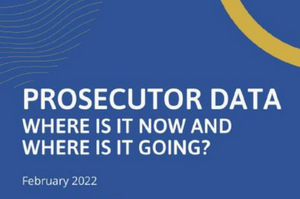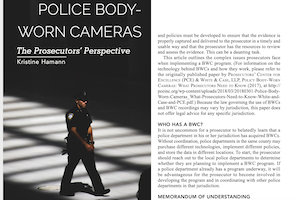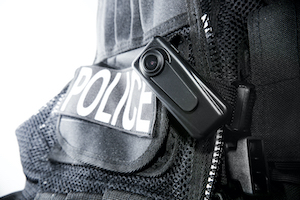PCE Videos: The Prosecutors’ Crime Analyst: An Essential Employee

On October 18, 2022 PCE hosted a Pop-Up on prosecutor crime analyst as an employee.
Read More

On October 18, 2022 PCE hosted a Pop-Up on prosecutor crime analyst as an employee.
Read More
Authors: Kristine Hamann, PCE and Gaelin Bernstein.
Read about the various essential tasks that a crime analyst can perform in a prosecutor office.

Author: PCE
A modern prosecutor embraces and uses data. Data is central to a prosecutor’s work as it can inform policy decisions, guide management, provide transparency and allow for research. The vision has yet to be fully realized, but it is encouraging that there is a growing awareness both inside and outside of prosecutor offices of the critical need for data.
This paper gives an overview of the current state of prosecution data, summarizes the data challenges faced by prosecutors, identifies new trends that are springing up in prosecutor offices, and poses questions for the future.

On February 3, 2022, the PCE Pop-Up focused on Data Dashboards. Here are the materials and videos of the presentations.
Read More
Location: Virtual (previously Salt Lake City, UT)
Oct 15, 2020 – 9:30 am – 5:00 pm
Time: 9:30 AM (EST) – 5 PM (EST)
Details: For prosecutors only. To view agenda Click Here. To view meeting booklet Click Here.
Read MoreAuthor: Antonia Merzon, Colorado Best Practices Committee for Prosecutors
The report discusses pros and cons, technological aspects and key questions related to the cameras, privacy concerns, and more.

Author(s): Kristine Hamann and Rachel Smith
Technology is expanding, evolving, and improving at an explosive rate. Society, including law enforcement, is struggling to keep pace with these seemingly daily developments. This paper addresses facial recognition technology used by law enforcement to enhance surveillance capabilities and the associated legal issues it raises.
Read More
Author(s): Kristine Hamann
As police departments across the United States embrace the use of police body-worn cameras, the cameras will inevitably capture a great deal of evidentiary material that will be useful in every type of criminal prosecution. The impact of this new source of evidence has yet to be fully realized.

Prosecutors are obligated to provide timely and complete discovery, particularly with regard to exculpatory and impeachment material. The discovery process can be complex and time consuming. Failure to properly record the discovery documents provided to the defense can jeopardize cases and put prosecutors at risk of being charged with ethical violations. Thus, prosecutors are turning to technology to streamline the discovery process and to create a reliable record of what was turned over to the defense and when.
Read More
Author(s): Kristine Hamann, PCE
As police departments across the United States embrace the use of police body-worn cameras (“BWCs”), it is imperative that prosecutors be involved in the uptake process as early as possible. The cameras will inevitably capture a great deal of evidentiary material that will be used in every type of criminal prosecution. Thus, systems and policies must be developed to ensure that this evidence is properly captured and delivered to the prosecutor in a timely and usable way.
Read More